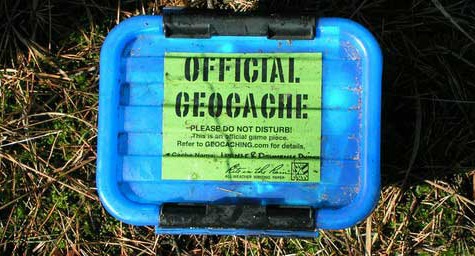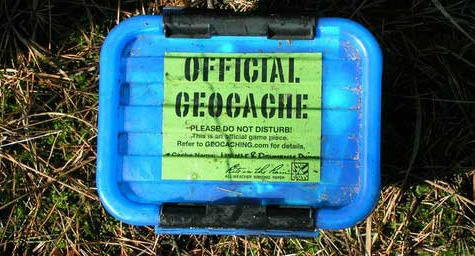Have you ever wanted to go on a treasure hunt? Does trying to reach a random location sound like a great way to spend a Saturday afternoon? Then you may want to try geocaching .
The concept is simple. After jotting down coordinates via a website or logging onto an app with their smartphones, geocachers attempt to reach a certain location and uncover a logbook. If they’re successful, they add their name to it and confirm that they found it online.
To make finding a geocache more exciting, participants also sometimes add “trackables” to the stash: small objects like dog tags to coins that can be tracked as they make their way around a country.
The average geocache is typically placed in a public park but many others are located in libraries, underwater, and even on mountaintops. Finding the trickier ones can involve answering riddles or visiting multiple locations before determining the correct spot. Tracking down other challenging geocaches often requires climbing trees or digging them up with a shovel.
As with many odd things in this world, such as Uncle John’s Bathroom Reader, geocaching has its roots in Oregon. When GPS was made available to the public in 2000, computer consultant Dave Ulmer wanted to test the accuracy of the location-determining satellites and placed a box with a note in the woods near his home in Beaver Creek, Oregon. Then he published its coordinates on an online forum for GPS enthusiasts and challenged his colleagues to find it. After that, others began sticking their own boxes in random places around the world to see if people could use GPS to find them. (One of them, Matt Stum, coined the term “geocaching” right away.) Since then, thousands of geocaches have been placed in pretty much every country on the planet.
But all that searching around can look…odd. Many participants have been questioned by law enforcement officials for “behaving suspiciously.” Several geocachers have also died while searching, and a family in Rochester, New York had to be rescued after looking for a geocache in a cave in 2012. As a result of these incidents, several government agencies have now cracked down on geocaching. Among them: the Virginia Wildlife Management Agency which now prohibits geocaches.









